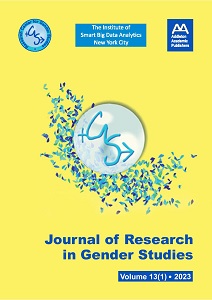Beauty Artificial Intelligence and Context-aware Emotion Recognition Technologies, Neuromorphic and Bio-inspired Computing Systems, and Big Data-driven Facial Retouching Tools for Visually Appealing Self-presentations and Negative Emotional States
Beauty Artificial Intelligence and Context-aware Emotion Recognition Technologies, Neuromorphic and Bio-inspired Computing Systems, and Big Data-driven Facial Retouching Tools for Visually Appealing Self-presentations and Negative Emotional States
Author(s): Lucia Michalkova, Ana-Maria-Sonia Petreanu, Camelia Chitcă, Petris Geambazi, Kriselda Gura, Georgeta-Anca PetreSubject(s): Gender Studies, Social psychology and group interaction, Social Informatics, ICT Information and Communications Technologies
Published by: Addleton Academic Publishers
Keywords: beauty; artificial intelligence; emotion recognition; big data; facial retouching; visually appealing self-presentation; negative emotional state;
Summary/Abstract: This paper draws on a substantial body of theoretical and empirical research on artificial intelligence-generated hyper-realistic body-inclusive avatars, beauty artificial intelligence and context-aware emotion recognition technologies, and neuromorphic and bio-inspired computing systems. A quantitative literature review of ProQuest, Scopus, and the Web of Science was carried out throughout May 2023, with search terms including “visually appealing self-presentations” and “negative emotional states” + “beauty artificial intelligence and context-aware emotion recognition technologies,” “neuromorphic and bio-inspired computing systems,” and “big data-driven facial retouching tools.” As research published between 2019 and 2022 was inspected, only 174 articles satisfied the eligibility criteria, and 25 mainly empirical sources were selected. Data visualization tools: Dimensions (bibliometric mapping) and VOSviewer (layout algorithms). Reporting quality assessment tool: PRISMA. Methodological quality assessment tools include: AMSTAR, Distiller SR, ROBIS, and SRDR.
Journal: Journal of Research in Gender Studies
- Issue Year: 13/2023
- Issue No: 2
- Page Range: 9-23
- Page Count: 15
- Language: English
- Content File-PDF

